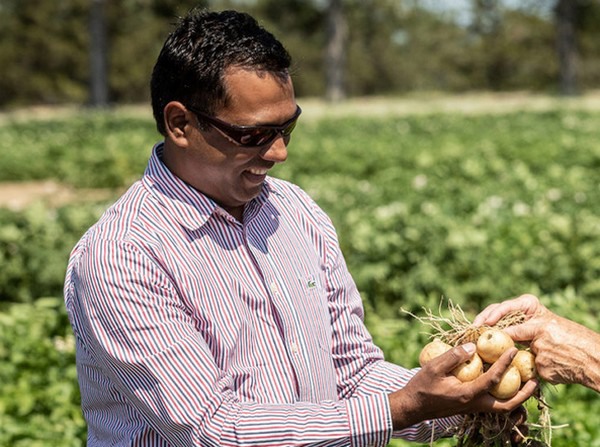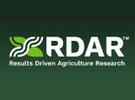Currently, the best way to find out whether or not a potato is good to go to market is basic and old-fashioned – cut it open and look to see if there are defects. The process is time-consuming and destructive, taking good potatoes off the production line for random testing. A new research project at Lethbridge College aims to use cutting-edge near-infrared (NIR) hyperspectral imaging technology to test potato quality more quickly in a way that doesn’t destroy good product.
Dr. Chandra Singh, who has recently been promoted to Senior Research Chair in Agricultural Engineering and Technology at Lethbridge College, is leading the three-year, $523,300 project, which includes more than $400,000 in funding from Results Driven Agriculture Research (RDAR) and Alberta Innovates.

The project uses an NIR hyperspectral imaging system and machine learning techniques to detect quality parameters in potatoes, without destroying the samples. The major quality issues associated with potatoes are internal defects, greening, specific gravity (a measurement of the solids or starch content relative to the amount of water contained in a potato) and sugar content.
“When we talk of sustainability and optimal yield, this is where the non-destructive technique can help,” says Singh, whose background is in NIR hyperspectral imaging, including during his PhD work. “The cost has gone down for this technology, the cameras and supporting technology are less expensive and the processing is much, much faster. So, we are at a point where this technology can be implemented on a large-scale.”
The college previously acquired the technology that will be used in the project through a Natural Sciences and Engineering Research Council of Canada (NSERC) grant in 2021. The project will identify the most significant wavelengths required to detect the quality parameters associated with potatoes. It will also test the NIR hyperspectral imaging system at speeds simulating commercial scanning speed and will eventually design a prototype for commercial application of the system based on extensive testing and analysis.
“The companies I am working with want to commercialize this technology and are ready to go if this project is successful,” says Singh. “That is what we want to see – the research outcomes benefitting the end users, so we look forward to using this technology to help the potato industry in the near future.”
In addition to RDAR and Alberta Innovates, the project also involves a collaboration with University of Lethbridge Research Scientist Dr. Michelle Konschuh and in-kind contributions from Lamb Weston, Old Dutch Foods and the Edmonton Potato Growers.
For more information:
Janada Hawthorne 
Results Driven Agriculture Research
Tel.: +1 780-903-2734
[email protected]
Paul Kingsmith
Lethbridge College
Tel.: +1 403-320-3202










